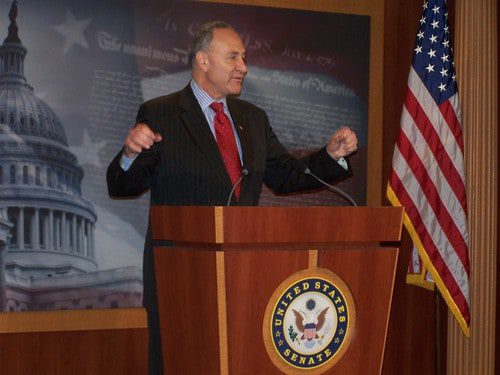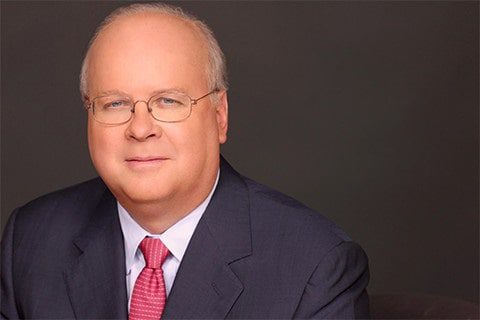
Opinion
By Karl Rove
Democrats are belting out hosannas for the Inflation Reduction Act. President Biden says it’ll “immediately help” his party’s candidates for the midterms this fall, while Senate Majority Leader Chuck Schumer calls it “a game-changer.” The New York Times declared that this “sweeping legislation” gives Democrats “an unfamiliar feeling: hope.”
Maybe this bill will let Democrats escape what was shaping up to be a midterm whooping. But I’m skeptical.
For starters, if the bill doesn’t immediately reduce inflation, it’s going to be impossible to hide from voters. Americans will experience higher prices every day—when they go to the supermarket, shop for the kids’ new school year or pull into the gasoline station.
Democrats insist the bill will slash prices by spending $433 billion and creating new taxes totaling $739 billion. But nonpartisan experts believe it’ll have no noticeable downward pressure on prices—including the Congressional Budget Office (“negligible at best”), the Bipartisan Policy Center (“small impacts one way or the other”), and the Penn Wharton Budget Model (“statistically indistinguishable from zero”).
By contrast, some of the ways the bill will raise costs and hurt growth begin almost immediately. Take the book minimum tax, which hits companies with at least $1 billion in income in their financial statements. They’ll pay 21% of taxable income or 15% of the income reported to investors, whichever is greater. It falls with particular violence on manufacturing companies. They’re already examining what it’ll do to their taxes, so workers in adversely affected businesses could soon see pay cuts, reduced hours, or even layoffs. That’s not likely to gin up enthusiasm for Democrats.
The bill also establishes that beginning in January, drug companies must pay a rebate if prescription prices for Medicare recipients rise faster than inflation. To cover that difference, drug companies will likely raise prices for non-Medicare patients, perhaps before year’s end.
The bill’s green-energy subsides are much bigger for companies using union labor. This payoff to big labor bosses may have the unintended effect of alienating nonunion blue-collar workers who feel Democrats stacked the deck against them.
Then there’s the $80 billion Internal Revenue Service expansion so the IRS can double its audits. Millions of honest taxpayers and small businesses may reasonably fear that they’ll lose time and money to bureaucrats needlessly rooting around in their tax returns.
Democrats may think they’ll get lucky on timing, that the economy will bounce back on its own and obscure the real effects of their bill. Americans received good news Wednesday with July’s flat consumer-price index, largely because of a 4.6% month-over-month decline in energy prices. But as with April’s good inflation news, this doesn’t mean the struggle is over. The CPI was still up 8.5% year over year. The core price index is 5.9% higher than this time last year, driven in part by July increases in costs for food, rent and new cars.
Op-Ed by Mr. Rove, courtesy of rove.com, was first published in The Wall Street Journal.

Karl Rove served as Senior Advisor to President George W. Bush from 2000–2007 and Deputy Chief of Staff from 2004–2007. At the White House he oversaw the Offices of Strategic Initiatives, Political Affairs, Public Liaison, and Intergovernmental Affairs and was Deputy Chief of Staff for Policy, coordinating the White House policy-making process.
Mr. Rove has been described by respected author and columnist Michael Barone in U.S. News & World Report as “…unique…no Presidential appointee has ever had such a strong influence on politics and policy, and none is likely to do so again anytime soon.” Washington Post columnist David Broder has called Mr. Rove a master political strategist whose “game has always been long term…and he plays it with an intensity and attention to detail that few can match.” Fred Barnes, executive editor of The Weekly Standard, has called Mr. Rove “the greatest political mind of his generation and probably of any generation. He knows history, understands the moods of the public, and is a visionary on matters of public policy.”
Before Mr. Rove became known as “The Architect” of President Bush’s 2000 and 2004 campaigns, he was president of Karl Rove + Company, an Austin-based public affairs firm that worked for Republican candidates, non-partisan causes, and non-profit groups. His clients included over 75 Republican U.S. Senate, Congressional, and gubernatorial candidates in 24 states, as well as the Moderate Party of Sweden.

